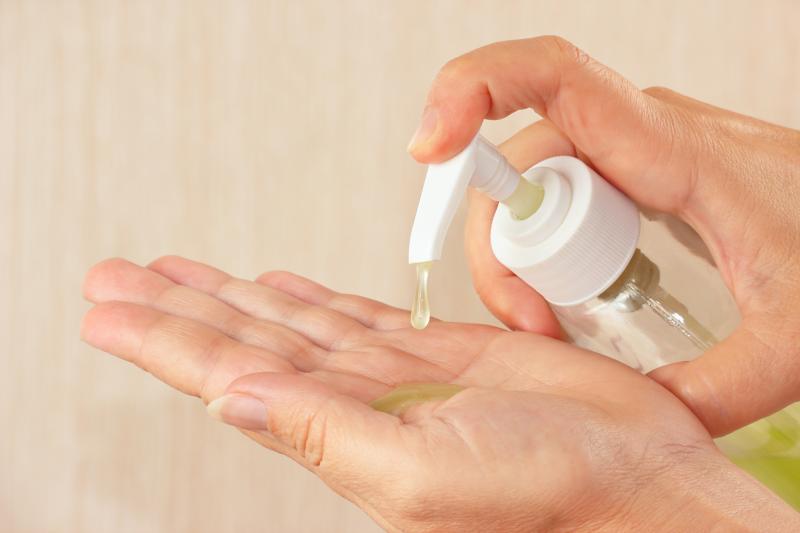 Frequent use of anti-bacterial soap which contains triclosan may result in development of antibacterial resistance, according to researchers.
Frequent use of anti-bacterial soap which contains triclosan may result in development of antibacterial resistance, according to researchers.Face masks and hand towels may be powerful ways of controlling the spread of the coronavirus disease 2019 (COVID-19), according to a new study.
“[I]nstant hand wiping using a wet towel containing soap or sodium hypochlorite removed most viruses from hands,” researchers said, adding that while N95 and surgical masks remain superior, filtering out almost all of the virions, “homemade mask blocked approximately 95 percent of the virus.”
To test the efficacy of hand wiping, the researchers spread 5 µL of undiluted allantoic fluid containing avian influenza virus (AIV) on the palm of one of the authors. After 3 minutes, the hand was wiped thrice, from the base to the tips of the fingers, with a wet towel soaked in a water solution containing soap or sodium hypochlorite.
The hand was then washed with 5 mL of a phosphate buffered saline (PBS) solution, from which RNA was extracted for subsequent virus detection. Reverse transcriptase-polymerase chain reaction (RT-PCR) showed significant viral clearance. [J Med Virol 2020;doi:10.1002/jmv.25805]
In particular, the towels soaked in 1.00% (g/g) soap powder were able to remove 98.36 percent of the virus on the palm, while the 0.05% (g/g) sodium hypochlorite solution cleared 96.62 percent of the viral particles. The 0.25% (g/g) sodium hypochlorite solution emerged as the most powerful solution, removing 99.98 percent of the virus on the volunteer’s palm.
No wiping was designated as a control set-up, and each experiment was performed in triplicates to ensure statistical robustness.
“Because clean water is often unavailable at hand, people can be infected through hand-mouth, hand-nose or hand-eye contact before handwashing,” the researchers said. “In this sense, it is important to have one item at hand, such as 75% alcohol, hand sanitizer gel, disinfecting wipes, for instant hand hygiene after we have touched something possible contaminated by the virus.”
The present results found soap and sodium hypochlorite to be effective at removing viruses from the hands, they added. “It is worth noting that the concentration of soap powder and sodium hypochlorite is vital for their wiping and virucidal effects.”
To test the utility of face masks, AIV was diluted 1:10 in PBS and fed into a nebulizer to produce aerosols, which were then collected into a seamless plastic bag. Syringes were used to simulate human breath, inhaling into and out of the plastic bags for 100 times. Three different masks were placed in front of the syringe to approximate typical use.
Subsequent RT-PCR analysis showed that the N95 masks were able to block 99.98 percent of the virus, while medical masks filtered out 97.14 percent of the infectious particles.
Notably, homemade masks, consisting of one layer of polyester cloth with four layers of kitchen paper, had impressive efficacy, blocking 95.15 percent of the virus.
“With the above data and discussion, we propose herein the approach of mask wearing and instant hand hygiene, namely that common people should wear effective masks and bring an appropriate item for instant hand hygiene when needed, to slow the rapid spread of the virus worldwide,” the researchers said.
“This is crucial for the world to reduce severe and fatal cases of the virus before successful marketing of the effective vaccines against the coronavirus, and avoid the tragedy of medical systems being overwhelmed by surge of too many patients,” they added.